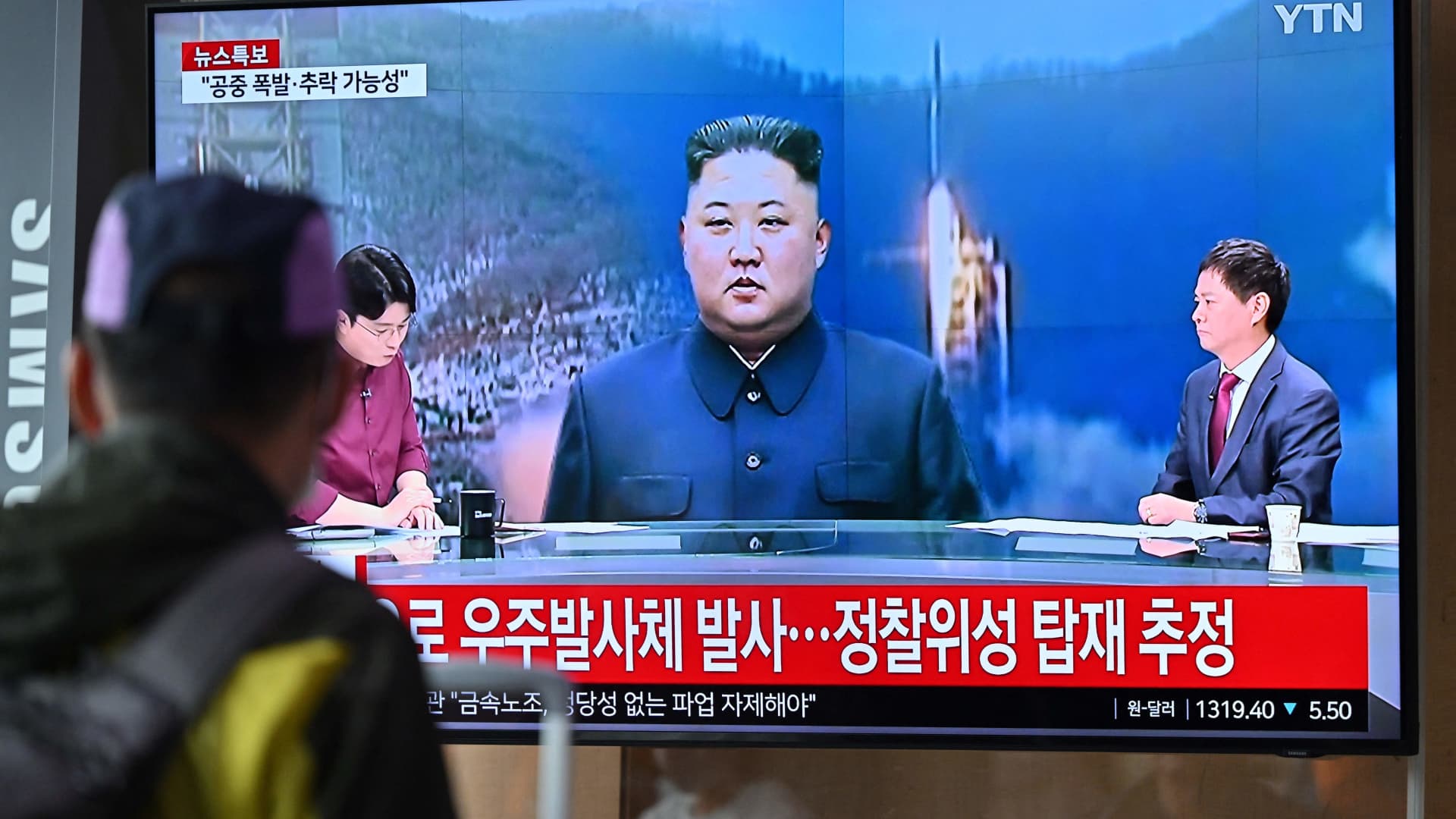North Korea says its first spy satellite launch ends in failure, crashes into sea
North Korea's state media agency said that an "accident" occurred during the launch of a military reconnaissance satellite.

A man watches a television screen showing a news broadcast with file footage of North Korea's leader Kim Jong Un, at the Seoul Railway Station in Seoul on May 31, 2023.
Jung Yeon-je | Afp | Getty Images
North Korea's first attempt at launching a military spy satellite resulted in failure on Wednesday, with South Korea's military picking up wreckage after the carrier rocket crashed into its western waters.
North Korea's state media agency, the Korean Central News Agency, said that an "accident" occurred during the launch of a military reconnaissance satellite.
"The carrier rocket 'Chollima-1' fell to the West Sea of Korea after losing thrust due to the abnormal starting of the second-stage engine after the separation of the first stage during the normal flight," it said on the English language version of its website.
The rocket, with a mounted satellite, was launched at 6:27 a.m. local time as it previously announced.
North Korea's state media added that the failed launch was due to "low reliability and stability of the new-type engine system applied" to the carrier rocket and the "unstable character of the fuel used."
South Korean officials added that they are in the process of recovering "what could be the wreckages from the purported 'space launch vehicle' fired by North Korea."
South Korea salvaged what is seen to be objects that fell off from purported 's North Korea's space launch vehicle on Wednesday, May 31, 2023.
Source: South Korean defense ministry
South Korea salvaged what is seen to be objects that fell off from purported 's North Korea's space launch vehicle on Wednesday, May 31, 2023.
Source: South Korean defense ministry
South Korea, Japan and the U.S. condemned North Korea's Wednesday morning launch and emphasized that it was a violation of a United Nations security council resolution.
The U.S.'s National Security Council said in a statement: "The door has not closed on diplomacy but Pyongyang must immediately cease its provocative actions and instead choose engagement."
"The United States will take all necessary measures to ensure the security of the American homeland and the defense of our Republic of Korea and Japanese allies," it added.
Second launch ahead
North Korea state media added that it will make a second attempt "as soon as possible" after looking into the "serious defects" from Wednesday's launch.
Officials in South Korea and Japan also acknowledged the possibility of an imminent launch from Pyongyang.
"North Korea has consistently shown its intention to strengthen its nuclear and missile capabilities, and we believe there is a possibility that it will continue to launch various types of missiles, conduct nuclear tests, and engage in other provocations in the future," Japan's chief cabinet secretary Hirokazu Matsuno told reporters in a briefing.

South Korea's presidential office also said that its National Security Council convened a meeting following North Korea's launch.
"The NSC members decided to continuously monitor North Korea's possible additional launch and maintained cooperation with allies and friendly nations," South Korea's NSC said.

 Tfoso
Tfoso 
































